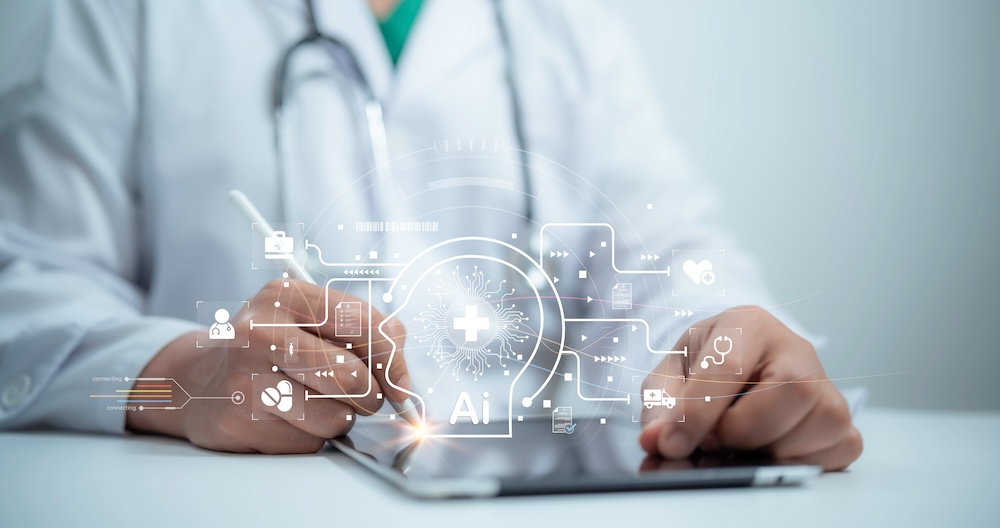This year at HLTH 2025, walking the expo floor and listening to panels, one message was unavoidable: AI is everywhere. From keynote sessions to startup pitches, healthcare innovation is rapidly being reframed through the lens of artificial intelligence.
But what struck me most was how often speakers shifted focus from a purely tech-driven narrative to emphasize three themes that are equally important to the future of healthcare and improving outcomes in our communities: data sharing, social drivers of health (SDOH), and the human element of delivering care.
1. Data Sharing: The Foundation for Impact
On several tracks, you could hear refrains like: “It’s not enough to build an AI model — you need the data to feed it, the pathways to share it, and the meaning to act on it.” Interoperability isn’t just a technical checkbox, and at HLTH this year it showed up as a strategic enabler. Without connected data flows between payers, providers, community partners and beyond, the promise of predictive analytics and AI-driven decision support risks being theoretical.
For Azara’s clients and partners (community health centers, critical access hospital and payers) this means the conversation isn’t simply, “Which AI tool?” but rather “How do we connect the data we already have, exchange it responsibly, and make it actionable?” In essence: build the foundation first, then layer on the advanced use cases. AI is a vehicle that needs access to quality data to fuel it and a human to tell it where to go.
AI is a vehicle that needs access to quality data to fuel it and a human to tell it where to go.
2. Social Drivers of Health: From Insight to Action
A second major theme that kept surfacing: if you ignore the contexts of where people live, work and age, you limit the impact of your clinical innovation. The session “Community-led Longevity for the Other 99 Percent” asked: “What is specifically killing people in this community, and how do we fix it?”
For Azara and our clients, SDOH data collection and usage is more than a trend, it’s an imperative. It shows up in risk stratification, chronic disease management, community outreach, and advancing value-based care. At HLTH I heard it reframed as empathy + insight: the ability to act on what you know about a patient’s housing, food security, transportation, or social stressors can change everything.
3. The Human Element: Empathy Remains Central
During dinner chats and between sessions, I found myself returning to one word I heard often: empathy. Innovation doesn’t replace human connection, it should amplify it. One panelist put it this way: “Data without context doesn’t create change.” The momentum around AI, data, and tech is important, yet the most resonant messages at HLTH were about how we apply those tools in human-centered ways.
That means care teams empowered rather than replaced, patients as partners rather than data points, and systems designed for trust and equity. It was a reminder that even the most advanced analytics are only as good as the connection they enable between provider and person.
Seeing It Through Azara’s Lens
At Azara Healthcare we’ve long believed that meaningful improvement in health outcomes arises at the intersection of data and care. What HLTH 2025 underscored for me is this: you must connect these dots by leveraging data effectively, layering in social context, and keeping the human at the center, to truly translate insight into action.
Our role at Azara is helping clients make an impact on the lives of the patients they serve and we do that by standing with them as they navigate the journey; not just by building tech, but by helping shape data strategy, partnerships and workflows that align across payers and providers. Because the ultimate goal is the same: better health, reduced disparities, and value sustained over time.
The Takeaway
If I were to sum up this year’s HLTH conference in one sentence, it is this: The future of healthcare innovation isn’t just about what you can build, it’s about what you can connect, share, and act upon with purpose and compassion. AI may have been, and continue to be, the buzzword headline for the foreseeable future but this year’s richest conversations were about the importance of data to drive change, how we leverage SDOH to see a complete view of a patient, and why we need to stay human to impact the health and lives of the communities we serve.
Related Articles

Surviving the One Big Beautiful Bill Act: Technology Strategies for Safety-Net Providers Facing Medicaid Cuts
Explore Insights
Automation, Access, and Alignment: What 2026 Has in Store for Population Health
Explore Insights
